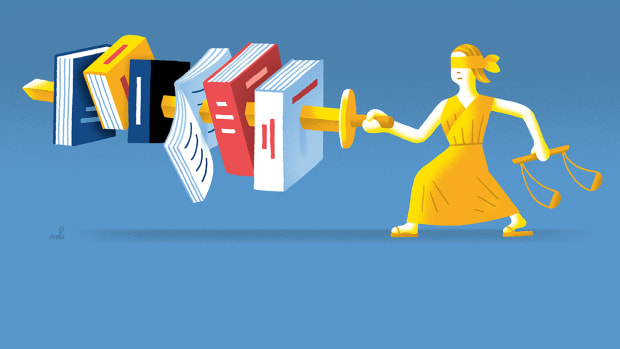
PhD students most often report violations of academic integrity
What is the state of academic integrity at the UvA? A discussion afternoon at the Allard Pierson reveals that students and doctoral students in particular get into trouble for violating that integrity.
It is PhD students who most often report to confidants who deal with academic integrity at the UvA, observes Joos Droogleever Fortuijn, who himself is such a confidant on the Roeterseiland campus.
Reports from PhD students are often about authorship. They are not listed as authors on articles they worked on, or co-authors appear on an article of theirs who did not collaborate on the research. Sometimes after rounds of revisions, PhD students no longer recognize their research in a scientific article.
In addition, PhD students experience problems with supervision, involving either transgressive behavior—sexual or otherwise—or neglect. Supervisors don’t have time to supervise PhD students, never read anything, or don’t remember appointments.
In 2023, the five scientific integrity confidants at the UvA received 60 reports. The cases were often about the appropriation of intellectual property such as data or ideas, different forms of plagiarism, problematic PhD supervision, and authorship. Joos Droogleever Fortuijn says: “Severe violations of scientific integrity such as making up or falsifying data are the exception.”
She observed two patterns. The first was power inequality: Rarely were issues between people of equal standing, but were almost always between students and teachers, PhD students and supervisors, young scientists and their supervisors. Also, a violation of scientific integrity was often not an isolated problem but appeared to be embedded in a much more complex labor dispute over contract awards, payment, or transgressive behavior. Where there is social insecurity, scientific integrity often comes into play as well.
Only three official complaints
At the moment it remains difficult for confidants to take concrete action against violations of scientific integrity, is one of the conclusions of a discussion afternoon on scientific integrity with contributions by Rector Magnificus Peter-Paul Verbeek and others in the Allard Pierson. In the past year, only three official complaints were received by the Committee on Scientific Integrity. Why is that? Do confidants have enough tools in their box to help complainants?
Droogleever Fortuijn responds: “First of all, confidants do not determine whether there has been a violation of scientific integrity. Our role is to offer a sympathetic ear and people sometimes underestimate the value of that. Taking concrete steps remains difficult because it is seldom absolutely clear exactly what transgression has been committed. In addition, reporting parties themselves do not always want to submit an official complaint via the Commission to prevent the relationship from deteriorating even further, or because they are reluctant to go through the lengthy adversarial procedure. Sometimes they want to get their doctorate first and then see what happens next.”
UvA undergraduate and graduate students sometimes suddenly find out one or two years after graduation that their work has been used in an academic article, without any kind of acknowledgment or thanks, let alone an indication of co-authorship. Reports of this are increasingly being reported to UvA confidants. Joos Droogleever Fortuijn says: “We are probably only seeing the tip of the iceberg, since how many students keep track of the scientific literature after graduation and actually go back to a confidant?”
Fenneke Blom, confidential advisor for PhD students at Amsterdam UMC, hears this all too often. “Once PhD students have obtained their doctorate, they often no longer file a complaint, but choose to leave science or go work in another department. Sometimes, too, they quit their PhD program.”
A course for PhD supervisors
A general course for PhD students on the policy regarding scientific integrity could also help, suggests Wenwen Guan, president of the Central PhD Council in a video message that afternoon. That way, PhD students would know better what their rights are and how to find help within the university.
“Then there should also be a course for PhD supervisors,” a participant in the audience responds. “That would be grist in the mill of Recognize and Appreciate,” says Rector Peter-Paul Verbeek, referring to the national program aiming to assess researchers on more than just research results. “If we were to work towards personal career profiles, why not provide all those career profiles with education? Not just for teachers but for all scientists. And not as a one-off, but with some regularity, the way a doctor obtains continuing education credits. That’s insanely important for academic integrity because developments are very rapid.”

